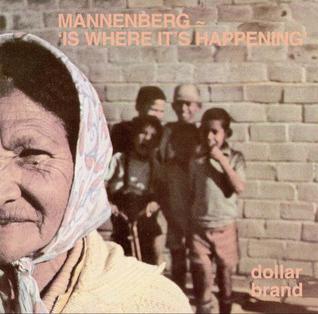Related Research Articles

Cape Coloureds are a South African ethnic group consisted primarily of persons of mixed race and Khoisan descent. Although Coloureds form a minority group within South Africa, they are the predominant population group in the Western Cape.

The South African music scene includes both popular (jive) and folk forms like Zulu isicathamiya singing and harmonic mbaqanga. South Africa has a global music industry.

Basil "Manenberg" Coetzee was a South African musician, perhaps best known as a saxophonist.
Marabi is a style of music that evolved in South Africa over the last century.

Abdullah Ibrahim is a South African pianist and composer. His music reflects many of the musical influences of his childhood in the multicultural port areas of Cape Town, ranging from traditional African songs to the gospel of the AME Church and Ragas, to more modern jazz and other Western styles. Ibrahim is considered the leading figure in the subgenre of Cape jazz. Within jazz, his music particularly reflects the influence of Thelonious Monk and Duke Ellington. He is known especially for "Mannenberg", a jazz piece that became a notable anti-apartheid anthem.

The Kaapse Klopse, formerly known as the Coon Carnival and officially called Cape Town Minstrel Carnival, is a Cape coloured minstrel festival that takes place annually on 2 January in Cape Town, South Africa. It is also referred to as Tweede Nuwe jaar. As many as 13,000 minstrels take to the streets garbed in bright colours, either carrying colourful umbrellas or playing an array of musical instruments. The minstrels are self-organised into klopse. The custom has been preserved since the mid-19th century.
Coon may refer to:
Robert Edward Jansen was a South African musician. He was born in Cape Town, South Africa.
Mountain Records is a record label started in Cape Town, South Africa in 1980 by Patrick Lee-Thorp.
South African jazz is the jazz of South Africa.
Goema, also written Ghomma and Gomma, is a type of hand drum used in the Cape Minstrel Carnival and in Cape Jazz in Cape Town. The word has also come to describe a hybrid musical genre which itself is one of the influences on Cape Jazz music. Notabe goema musicians include Mac McKenzie, Hilton Schilder, Errol Dyers and Alex van Heerden.
Beatrice "Sathima Bea" Benjamin was a South African vocalist and composer, based for nearly 45 years in New York City.
Sons of Table Mountain is a jazz band of Robbie Jansen, a South African musician from Cape Town. The band members are Robbie Jansen, pianist Hilton Schilder, Steven Erasmus, Jack Momplé and Alex van Heerden. Jansen released his second album in 2000, Cape Doctor, having used the group to record with him. They were one of the pioneers of the new Cape Jazz.
Alex van Heerden was a jazz musician from Cape Town, South Africa.
Winston Monwabisi "Mankunku" Ngozi was a famous South African tenor saxophone player.

"Mannenberg" is a Cape jazz song by South African musician Abdullah Ibrahim, first recorded in 1974. Driven into exile by the apartheid government, Ibrahim had been living in Europe and the United States during the 1960s and '70s, making brief visits to South Africa to record music. After a successful 1974 collaboration with producer Rashid Vally and a band that included Basil Coetzee and Robbie Jansen, Ibrahim began to record another album with these three collaborators and a backing band assembled by Coetzee. The song was recorded during a session of improvisation, and includes a saxophone solo by Coetzee, which led to him receiving the sobriquet "Manenberg".
The Pacific Express was a jazz-rock band based on the Cape Flats of Cape Town in the 1970s. The band were from the so called Coloured community and were ground breakers in both musical and political fields.
Hilton Schilder is a South African musician, well known in the genre of Cape jazz.
Errol Dyers was a South African musician, composer and guitarist and pioneer of Cape jazz/goema.

Kyle Shepherd is a South African Jazz musician and poet. Musically, Shepherd is based on the roots of Township-Jazz and Goema-Beat.
References
- ↑ Lars., Rasmussen (2001-01-01). Cape Town jazz, 1959-1963 : the photographs of Hardy Stockmann. Booktrader. p. 7. ISBN 8798453963. OCLC 655186349.
- ↑ Muller, Carol A. (2010). Focus: Music of South Africa. Routledge. p. 200. ISBN 9781135901820.